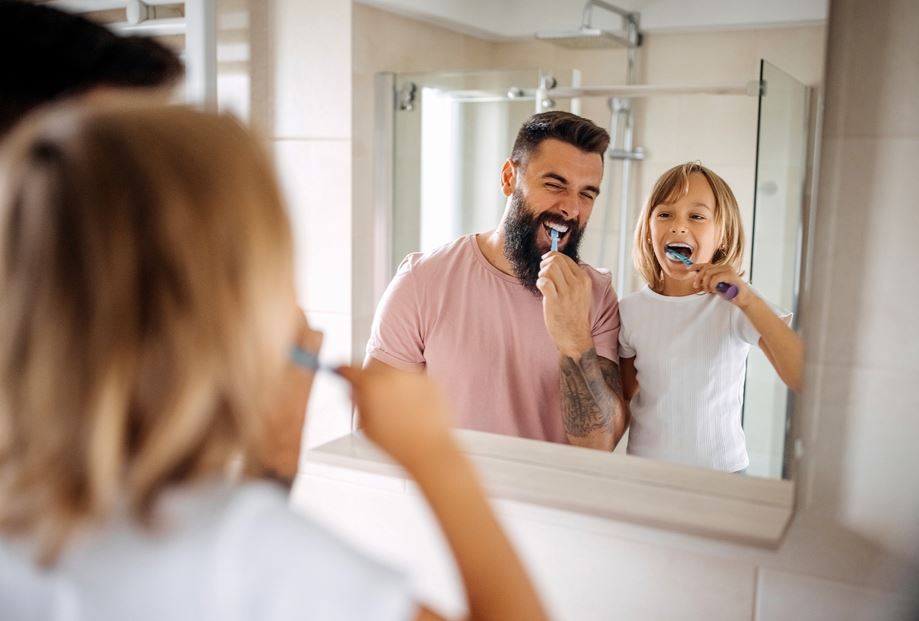Any good pediatric dentist will stress the importance of brushing to parents and their kids. As a parent, you naturally want to ensure your child’s oral health through brushing. However, some children can get rather fussy when it comes to brushing. In some cases, it can feel like having to pull teeth to get them to do it!
Thankfully, there are ways you can help teach your kids to brush without a hiccup. These ways stem from having kids understand the importance of brushing, which a child will adopt easier if they know the logic behind it.
Once you learn how you can do so, you can ensure your child will make a habit of brushing and do it well!
Right Age to Start Brushing
A new parent might struggle to figure out when is the right time to start brushing their child’s teeth. For the most part, the consensus among pediatric dentists is that it should begin at an early age. How early exactly? As soon as your infant shows the first sign of a tooth.
Typically, infants can expect to get their first tooth by the time they’re one. In which case, what you would want to do would be to help brush your infant’s teeth to avoid them being susceptible to tooth decay. Using a soft-bristled brush made for babies, wet it a bit and gently brush their teeth. During this time, you will want to avoid using fluoride toothpaste until your pediatric dentist says it’s okay to do so.
Why Brushing is Important
As adults, we understand that brushing your teeth is general upkeep for your oral health. However, it can be easy to forget why it’s so important to start brushing your teeth early and consistently. A full understanding of the importance of brushing can make it so you can communicate that better to your child.
Mainly, having your child brush their teeth daily is meant to instill it as a habit for them. Habits take time, practice, and consistency. If you incorporate brushing as just another part of their usual routine, your child can help prevent any future tooth decay from developing, like cavities, for instance. In turn, this promotes life-long oral care.
Ways to Encourage Brushing
Depending on the age of your child, you will need to adjust the way you encourage them to brush their teeth.
Teaching a Toddler to Brush
For instance, for a toddler, you will need to assist them in brushing their teeth. During that age, children are quite impressionable and soak information like a sponge. You can help your toddler with their oral routine by brushing alongside them. In this way, they can see firsthand how to brush their teeth properly. Plus, you two can make it something fun!
You can make funny sounds and faces as you flow through brushing together. The more engaging it becomes, the more your toddler will associate brushing with a positive experience. Furthermore, it’s a good idea to set an example for your child by putting an active effort into your oral care. Parents can easily forget how perceptive children can be. If you’re not brushing your teeth, then why should they?
So, be a good role model by ensuring your pearly whites are healthy, so your child can have the same!
Teaching Young Children to Brush
You will need to help your child to brush their teeth up until they reach the ages of 6–8 years. By those ages, they can typically brush by themselves. However, they might need more motivation to get it done. Some kids can find brushing their teeth to be rather monotonous and boring. They might end up doing a sloppy job by trying to rush through it.
As a parent, you need to ensure they’re brushing their teeth properly. In which case, you should inspect how they do so. If they’re not doing it well, you need to find ways to make brushing their teeth more fun and encouraging.
For instance, you can make a game out of it. Teach your child how to brush their teeth properly by giving a set time to meet. If your child is receptive to videos, you can always show them a few videos about oral health and brushing. In this way, your child can understand the importance of brushing in a way that they can understand.
Alternatively, you want to praise your child after they’re done brushing. Point out how well they managed to brush in hard-to-reach areas. And if you notice any issues, you can gently mention how they missed this one area, but express you have faith they will get it next time.
Teaching a child the importance of brushing shouldn’t be hard. Hopefully, this was informative and used to ensure your child maintains their lovely smile!
